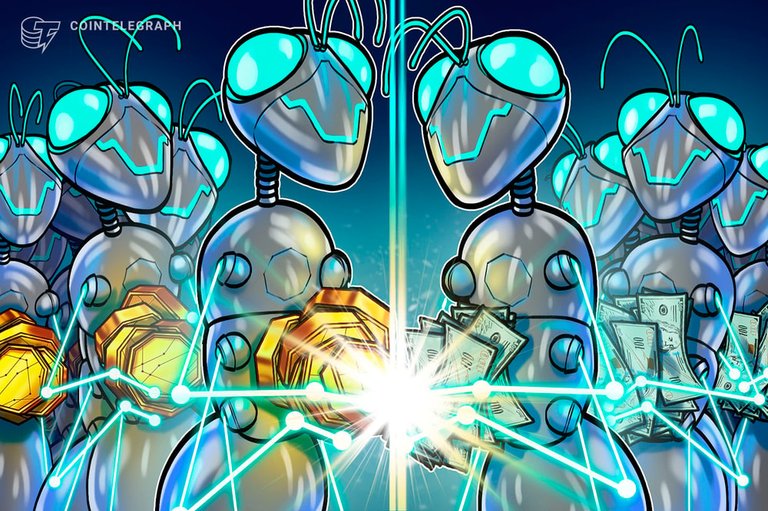Is RWAs tokenization the new buzzwords for crypto projects?
Or are there valuable outputs with these projects?
Every once a while, you'll find naysayers who'd rather get struck by lightning than embrace innovations. It doesn't come as a surprise that a lot of people are skeptical about real world assets (RWAs) tokenization and some see it as “not innovative enough” to be considered an improvement of the present markets of these assets.
A fun fact about this is that we can't generally fault these individuals because many times, their conclusions come from a place of ignorance.
Firstly, what even is tokenization?
Tokenization is the process of converting something of value—whether physical, digital, or abstract—into a digital token that can be stored, transferred, or traded on a blockchain or similar digital system. — ChatGPT
The keywords to note are “something of value.”
—Precious metals
—Real estate
—Private credits
—Stocks
—Bonds
All of these are something of value. Sometimes, like most recently, we can see projects moving to tokenize RWAs that are essentially baskets of investments into other real world assets (RWAs).
The tokenization of money market funds is a perfect example of this, and Goldman Sachs and BNY have recently been reported to be preparing to offer institutional investors access to said tokenized RWAs.
Why would anyone think of it all to not be a major innovation?
Why does the idea of tokenizing real world assets (RWAs) fail to appeal to these individuals?
Why should it be considered a case of buzzwords for crypto projects to make money off of?
We can answer these questions quite easily as it all comes down to ignorance. We have to point out that there are two sides of individuals sharing these sentiments. On one side, we have the anti-crypto ring that simply hates anything that has to do with crypto and blockchain technology. Then on the other side, we have the crypto natives that simply doubt these developments to be net positive.
Both sides, however, mostly base their arguments on one thing:
“Tokenization of real world assets does not make them decentralized!”
Fun fact, they are right. However, they are still wrong to use this as a basis to claim that these developments are not worthy of being considered innovative and a significant improvement of the current markets of real world assets.
Their idea that since the tokenization of real estate, for example, doesn't really change the fact that these properties are still subject to centralized governance rules, then it can't be considered an improvement of the real estate market, is largely flawed!
Why?
Remember our definition of tokenization? It said nothing about decentralization!
While decentralizing these markets will be a significant plus(possibly achievable in future), tokenization is fundamentally about turning “something of value” into a digital token and what are the basic characteristics of a digital token?
We have:
—Programmability
—Divisibility
—Ownership
—Interoperability
—Traceability
What does this tell us about the tokenization of real world assets (RWAs)?
It tells us that when real estate is tokenized, we make it more programmable and that allows us to take the vastly illiquid real estate market and make it into something that can actively contribute value to the broader economic system, as a token functioning on a blockchain.
Imagine if you could put the value of a property into a savings account and earn yield. That's only possible when real estate is tokenized and effectively becomes programmable.
Programmability enables the transformation of illiquid markets into more active capital markets by automating value flow across various economic systems with trustless execution.
Beyond programmability, we have divisibility, this is where the popular term “fractionalization,” comes in.
By fractionalizing real estate, we lower the barrier for investment in the market. How could anyone say that making real estate more accessible is not innovative? How can exposure to more capital injection opportunities not be an improvement of this illiquid market?
Ownership and traceability, generally can be paired to explore as a benefit. If I buy a tokenized real estate, that is provably legal, I now hold ownership that can be verified, on-chain. The major benefits here is that for one, nobody can take away what I own because tokens are generally individually managed, unless custody is given up and secondly, the traceability of my ownership means that fraud in said markets is significantly reduced because people can look to see who owns what at all times and without control of my private keys, no third-party can claim ownership of said real estate holdings.
When it comes to interoperability, now we are talking about global economies, which currently, are mostly disconnected.
Interoperability solves this problem!
We can develop and release millions of blockchains but at the end of the day, interoperability of assets on every chain will remain a feature. It doesn't matter if the system is completely different, there will always be a way to make it possible for value to flexibly move across chains.
And the best part is that we achieve all of this at a very low cost!
This is what tokenization of real world assets (RWAs) brings about, so no, it isn't just some buzzwords for crypto projects. It is a significant shift in how the value of everything around us is managed or leveraged! Currently, about $25.12 billion in real world assets have been tokenized(excluding fiat tokenization through stablecoins)!
No more idle value or capital. This is the future!
Posted Using INLEO
